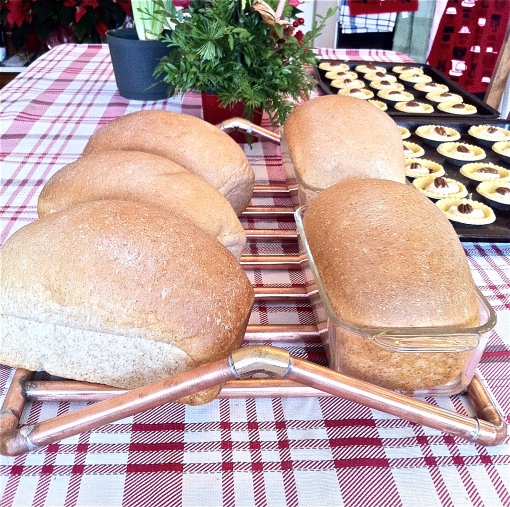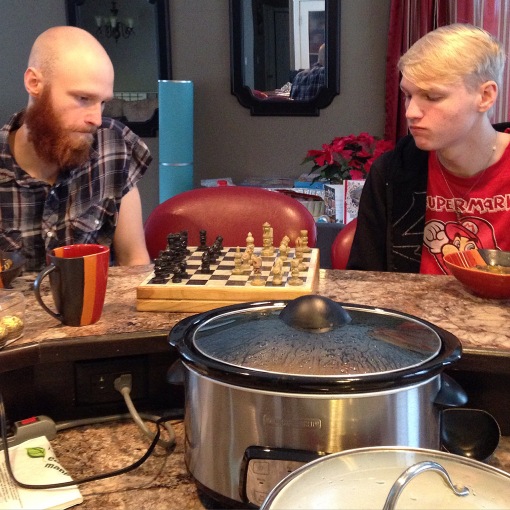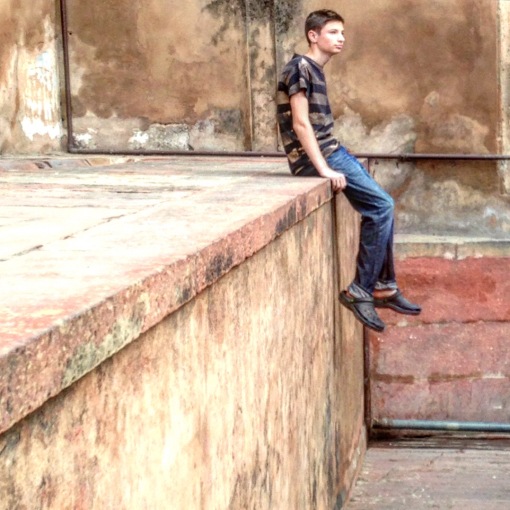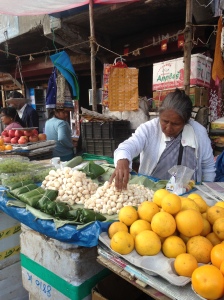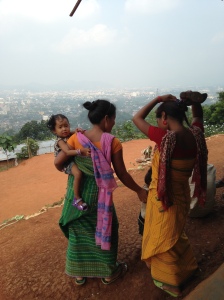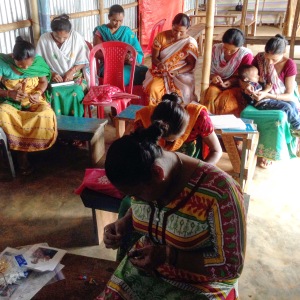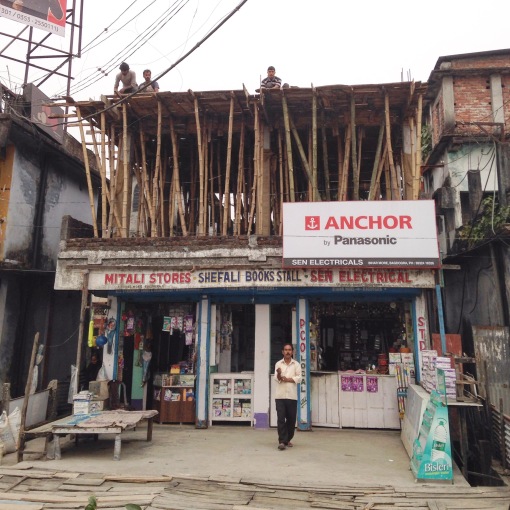
I am a middle-aged mother with a chin hair problem. Trust me, I have not been stared at while walking down the street in a long time, unless it’s because my skirt has been accidentally tucked into the back of my panties.
I have been stared at in India for thirty-something days, now. It’s because I am white, of course. I am very, very white, right down to my chin hairs, and that makes me obviously different. I also dress and talk and eat and laugh in distinctly different ways.
I am not used to being this obvious.
Here in India, in public places, people will often ask me for a photo. Momma and baby will stand beside me and I will smile with these strangers while Daddy takes the snap. (That’s what they say here. Let’s take some snaps to remember each other by.)
It’s a bit weird and uncomfortable, and I haven’t quite worked out the motivation for it. I’m guessing it’s a combination of novelty and misplaced white-person honour, but I really don’t know.
The street markets, though, are the most challenging. On a good day, I ward off the stares with nonchalance and self-confidence. On a bad day, I’m certain they are all passively annoyed at the clumsy, foreign woman who is willing to pay four times the going rate for a chocolate bar.
Occasionally, when I am feeling righteous, I think things like:
- This must be what it’s like to have a visible disability.
- This must be what it’s like to be an immigrant or a foreign exchange student.
- This must be what it’s like for my really tall friend, Dawn.
In my not-so-righteous moments, which are most of my moments, I am mostly annoyed. I don’t like being stared at. I don’t like feeling like I am different. Being watched makes me feel defensive and feeling defensive makes me suspicious. I assume things about what others are thinking.
Then the t-shirt vender smiles at me and I realize I don’t have a clue. I really don’t. And I am so ridiculous.
They stare, sure. Maybe some of them have negative thoughts about me, but most of them have forgotten about me three minutes after I’ve passed by. I’m no big deal. I’m a passing curiosity at best. And, let’s face it, I’m staring at them, too.
Being stared at in India has been good for me. It still makes me uncomfortable, but uncomfortable experiences are often important, humbling, learn-something-about-yourself experiences.
So, thank you for staring, India. I hope we will be mutually respectful in our curiosity. I hope I will be a positive example of a foreign tourist in your midst. And when I blunder, I hope you will laugh with me and forgive me my boorishness. It’s not intentional.


